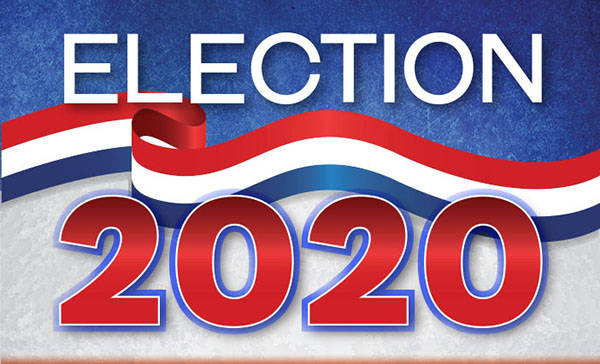
The 2020 election was this Tuesday, and it followed the same script as the rest of 2020, chaotic and unpredictable. It could be weeks before the actual winner is declared. On a positive note, this election saw a record number of voters cast their ballots.
The Democratic party’s strategy has been to make the voting process as easy as possible so that voters who historically did not go to polling locations can vote by mail.
The Republicans’ counter to that strategy is to turn out in large numbers to vote in-person during early voting and Election Day. Rural conservative voters, stung by the lack of respect shown for the rural counties by the democratically controlled Nevada State Legislature, willingly stood in line Tuesday for hours to cast their ballots for President Trump. President Trump connects with rural voters because they see him as someone that shares their conservative ideals.
Whether Nevada would revert to red or remain a blue state was too close to call as of Wednesday morning. Clark County accounts for almost 70% of all Nevada voters, and according to county officials, thousands of mail-in ballots still need to be counted. The mail-in votes counted so far have favored Democrats by a substantial margin, validating the Democrats’ voting strategy. In a state with a long history of legalized betting, the odds are that the mail-in ballots from Clark County will keep Nevada in the blue state category.
The neighboring states of California, Oregon, and Washington, are all blue states dominated by Democratic urban voters. San Francisco, Los Angeles, Portland, and Seattle are the main population centers in their respective states. Like Clark County in Nevada, those population centers control their state legislatures. If you look beyond those urban centers, you find that the rest of those states are predominately rural and conservative. In Nevada, every other county (except Washoe county that vacillates between blue and red) is solidly in the red category.
This extreme political polarization between urban and rural areas has fostered in many states’ the movement to try and split up their states. If that were to happen in Nevada, for example, Clark County would be a state, and the remaining counties would be a different state. The same scenario could happen for California, Oregon, and Washington, where the urban areas spin off into states separate from the rural areas.
In the Nevada rural counties, the state separatist movement has not yet taken off. Instead, voter dissatisfaction with our Democratic-controlled state Legislature and Democratic governor drives the campaign to recall the governor. The same circumstances exist in California, where the rural central valleys are opposed to Governor Newsome’s policies. Many businesses in California, outside the urban areas, have signs posted on their doors, encouraging a governor’s recall. Rural voters want a voice in how their state is governed and feel ignored. The long lines here for residents waiting to vote should send a signal to Carson City that rural residents are passionate about their state and rights. There is a bumper sticker you occasionally see on the back of vehicles in rural Nevada “I don’t care how you did it in California, this is Nevada.” The new variation of that might be “I don’t care how you do it in Clark County, this is Nevada.”
The chaos surrounding the 2020 presidential election is another example of a year gone terribly wrong.
Tim Burke is a businessman, philanthropist, educator and Pahrump resident. Contact him at timstakenv@gmail.com